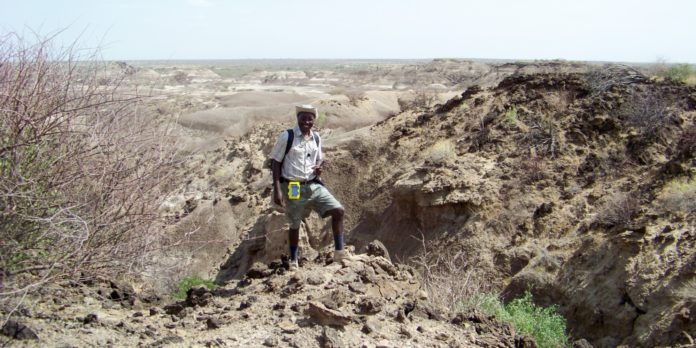MACON – Mercer University School of Medicine faculty member Francis Kirera, Ph.D., is part of a multi-institutional, multi-national team that received a $2.6 million National Science Foundation (NSF) grant to explore the geology and paleontology of the East African Rift Valley (EARV) in Kenya.
The EARV began developing around the onset of the Miocene, a geological epoch that extends from about 23 million to 5.3 million years ago. The area is known for its rich fossil record, especially those belonging to early humans.
The three-year project, titled “Parsing the influence of climate and tectonics on Miocene ecosystems and faunal evolution in the East African Rift, Kenya,” is led by Dr. Isaiah Nengo of Turkana Basin Institute and involves more than 20 researchers from institutions in the U.S., Europe and Africa.
Set to begin next July, the project aims to survey old and new Miocene sites in the Turkana basin region. Dr. Kirera’s team will specifically focus on the Sibiloi site on the eastern side of the Lake Turkana, known for the presence of huge fossil woods.
“This is exciting news for paleontologists working in East Africa,” said Dr. Kirera. “For the first time, this grant brings together researchers from three continents with diverse backgrounds in the fields of geology, paleoclimate, paleoecology and paleontology to work as a team and try to tease out the forces behind the evolution, diversity and distribution of Miocene fossils from the Turkana basin.”
Dr. Kirera, assistant professor of anatomy in the Department of Biomedical Sciences, focuses his research on reconstructing the paleoecology and biogeography of ancient mammals, including early humans, primarily in Kenya.
His research has two components: fieldwork, entailing prospecting, excavating and collecting fossils, which are deposited at museums and research institutions in Kenya for preparation, curation and study; and lab work, involving analyzing and describing fossils that are curated at the museums. He and his collaborators also visit museums that house contemporary osteological collections for comparative studies against fossils.
In addition to the NSF-funded Frontier Research and Earth Sciences Project, Dr. Kirera is involved in two additional research projects.
The Loperot Miocene Project involves a 17-million-year-old site in West Turkana in Northern Kenya that is famous for a beaked whale (ziphiid) fossil discovered in 1975. The discovery demonstrated that the area was at one time connected to the Indian Ocean via a large river system, despite currently being more than 500 miles inland. Dr. Kirera and his fellow researchers have recovered several mammal fossils from the area, including extinct monkeys and apes.
The Western Mount Kenya Project focuses on a new site, discovered in 2018, at Ngobit in the Central Highlands region of Kenya. In just one field season, Dr. Kirera and his collaborators have recovered more than 100 fossils from the area.
Dr. Kirera joined the faculty at Mercer in 2015. He previously worked at Ross University School of Medicine in the Caribbean and the National Museums of Kenya.
He earned his Ph.D. and Master of Arts from the University of Arkansas and Bachelor of Science from Kenyatta University in Kenya.
About Mercer University School of Medicine (Macon, Savannah and Columbus)
Mercer University’s School of Medicine was established in 1982 to educate physicians and health professionals to meet the primary care and health care needs of rural and medically underserved areas of Georgia. Today, more than 60 percent of graduates currently practice in the state of Georgia, and of those, more than 80 percent are practicing in rural or medically underserved areas of Georgia. Mercer medical students benefit from a problem-based medical education program that provides early patient care experiences. Such an academic environment fosters the early development of clinical problem-solving and instills in each student an awareness of the place of the basic medical sciences in medical practice. The School opened a full four-year campus in Savannah in 2008 at Memorial University Medical Center. In 2012, the School began offering clinical education for third- and fourth-year medical students in Columbus. Following their second year, students participate in core clinical clerkships at the School’s primary teaching hospitals: Medical Center, Navicent Health in Macon; Memorial University Medical Center in Savannah; and Piedmont Columbus Regional Hospital and St. Francis Hospital in Columbus. The School also offers master’s degrees in family therapy, preclinical sciences and biomedical sciences and a Ph.D. in rural health sciences.










